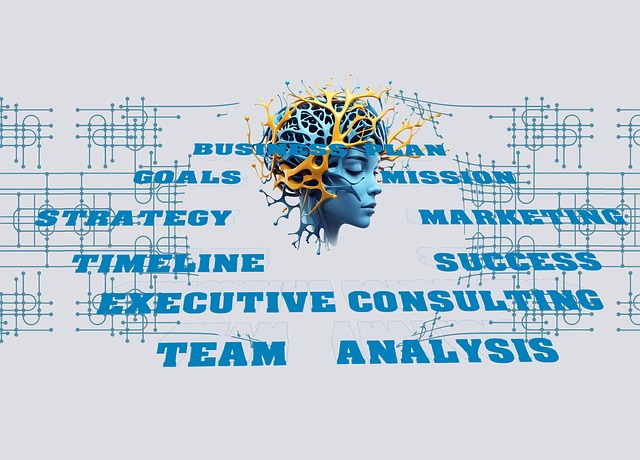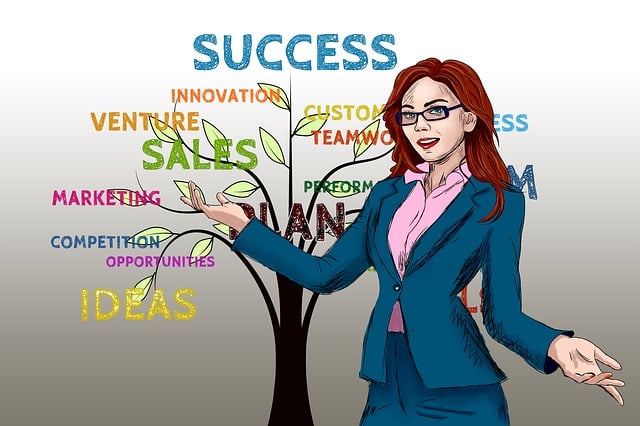A sales funnel for businesses visually maps customer journeys from interest to purchase, aiding in strategy optimization and conversion boosts. Bottlenecks identified through touchpoint analysis help improve drop-off points. Marketing analytics, automation tools (like CRM integration), and targeted email marketing streamline processes, reduce time-to-close, and enhance overall funnel efficiency. Regular metric tracking guides strategic refinements based on customer behavior insights.
Sales funnels are a powerful tool for businesses aiming to streamline their sales process and boost closing rates. This comprehensive guide delves into the dynamics of sales funnels, helping you identify bottlenecks and capitalize on opportunities at each stage. Learn how to optimize your funnel for faster transactions, measure its effectiveness, and refine your strategy accordingly. Discover actionable insights to transform your business’s sales journey and drive better results.
- Understanding the Sales Funnel Dynamics
- Identifying Bottlenecks and Opportunities
- Optimizing Each Stage for Faster Closings
- Measuring and Refining Your Strategy's Effectiveness
Understanding the Sales Funnel Dynamics

The sales funnel is a powerful concept that visualizes the customer journey from initial awareness to final purchase. For businesses, understanding this dynamic is essential for optimizing their strategies and increasing conversions. Each stage of the funnel represents a critical point where potential customers can either advance or drop out, significantly impacting the time it takes to close a deal. By analyzing these stages, businesses can identify bottlenecks and implement targeted solutions.
In the context of an ecommerce solution, a well-structured sales funnel guides prospects through a series of interactions designed to build trust and encourage purchases. For instance, a missed call text back strategy can be employed to recapture potential customers who may have left their contact information but didn’t follow through. This timely communication reengages them in the buyer’s journey, potentially converting leads into loyal customers by addressing any lingering doubts or questions.
Identifying Bottlenecks and Opportunities

Identifying bottlenecks is a crucial step in optimizing any sales funnel for businesses. By analyzing each stage of the customer journey, from initial contact to closed deal, companies can uncover areas where potential customers are dropping off or advancing slowly. This process involves examining every touchpoint—from marketing campaigns and website design to sales processes and communication strategies—to pinpoint specific challenges and inefficiencies. Once these bottlenecks are identified, businesses have a clear path to improvement.
Understanding opportunities alongside bottlenecks is equally vital. Marketing analytics can reveal trends and patterns that indicate areas of strength as well as weakness. For instance, robust social media marketing automation can drive engagement and qualify leads more effectively. A CRM system, integrated with marketing analytics, allows for detailed tracking of customer interactions, helping to optimize sales strategies and close deals faster. Leveraging these insights enables businesses to streamline their sales funnel, enhance productivity, and ultimately increase time-to-close.
Optimizing Each Stage for Faster Closings

Optimizing each stage of a sales funnel is a strategic approach that significantly enhances the speed at which businesses close deals. By meticulously examining every step from awareness to post-purchase, companies can identify bottlenecks and implement targeted improvements. For instance, utilizing marketing automation tools to streamline lead generation and nurturing processes can save valuable time and resources.
Customer relationship management (CRM) systems play a pivotal role here by providing a comprehensive view of the customer journey, enabling sales teams to focus on high-potential leads and personalize their interactions. Integrating email marketing strategies at each funnel stage further accelerates the process; well-timed and tailored emails can nudge prospects towards conversion, reducing the average time-to-close.
Measuring and Refining Your Strategy's Effectiveness

Measuring the effectiveness of your sales funnel is a crucial step to ensure it’s performing optimally for your business. By tracking key metrics like conversion rates at each stage, average deal size, and customer acquisition cost, you can identify bottlenecks and refine your strategy accordingly. Regularly analyze these data points to understand where potential customers are dropping off and make informed decisions to improve the funnel’s efficiency.
Automation plays a vital role in enhancing this process. Implement tools for email marketing and automation within your ecommerce solution to nurture leads, provide personalized experiences, and close deals faster. These technologies can help streamline communication, offer targeted promotions, and gather valuable customer insights, ultimately contributing to better sales funnel management and increased time-to-close.
Implementing a tailored sales funnel strategy is a powerful way for businesses to enhance their time-to-close, driving growth and success. By understanding funnel dynamics, identifying bottlenecks, optimizing each stage, and continually measuring performance, companies can create a seamless customer journey that expedites deals and increases revenue. This data-driven approach, centered around the Sales Funnel for Businesses, ensures a competitive edge in today’s market.
